Olympe de Gouges (1748 – 1793)
Quick Summary
Olympe de Gouges (1748 – 1793) was a playwright and major figure in history. Born in Montauban, Kingdom of France, Olympe de Gouges left a lasting impact through Publication of the Declaration of the Rights of Woman and of the Female Citizen (1791).
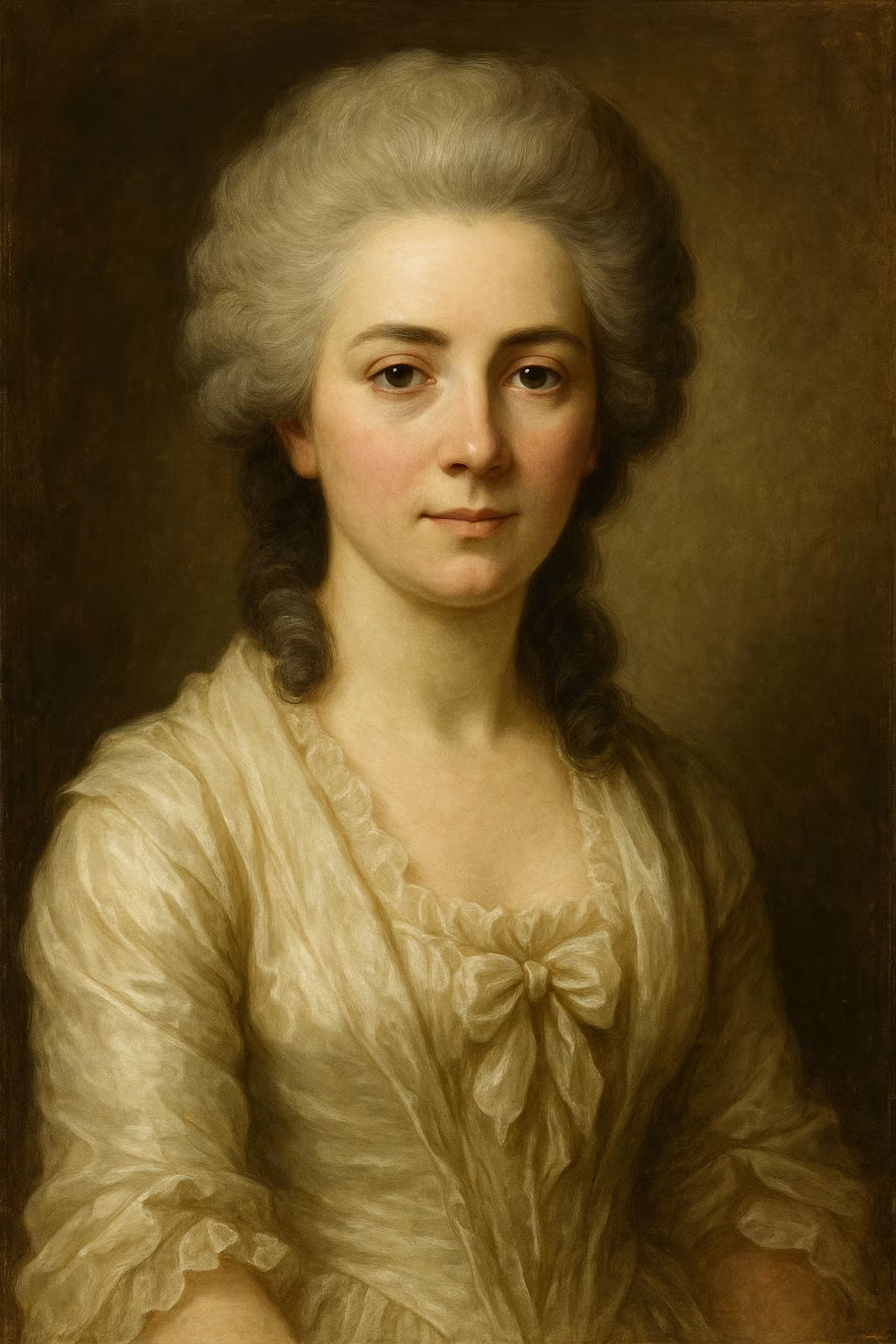
Birth
May 7, 1748 Montauban, Kingdom of France
Death
November 3, 1793 Paris, French First Republic
Nationality
French
Occupations
Complete Biography
Origins And Childhood
Born Marie Gouze on 7 May 1748 in Montauban, Olympe de Gouges was the daughter of Anne-Olympe Mouisset and, according to rumor, of the magistrate Jean-Jacques Lefranc de Pompignan. Her legal father Pierre Gouze worked as a butcher. She grew up in a prosperous Languedoc town marked by commerce and Jansenist culture. Although her schooling was rudimentary, she learned to read and write, attended provincial salons, and developed an avid interest in literature. Married at seventeen to Louis-Yves Aubry, she was widowed in 1766, a turning point that allowed her to reject the remarriage expected by her family. This early independence fed a rebellious temperament. She left Montauban with her son Pierre in 1770 for Paris, adopting the pen name Olympe de Gouges to fashion an authorial identity. Reinventing her surname functioned as a social strategy: to stand out in literary circles by claiming a noble pedigree that would lend authority to a woman’s voice in a male-dominated world.
Historical Context
The final decades of the eighteenth century in France were defined by economic crisis, political unrest, and an efflorescence of Enlightenment ideas. Debates over colonial slavery, the rise of Masonic lodges, and the emergence of a public sphere offered self-taught women like Olympe new opportunities to intervene. Parisian salons, the Comédie-Française stage, and political newspapers became laboratories for public opinion. When the fiscal crisis of 1787–1789 led to the Estates-General, sovereignty, natural rights, and citizenship were hotly contested. Olympe followed the works of Rousseau, Condorcet, and Raynal while criticizing their silence on gender equality. She also aligned with the Société des Amis des Noirs, the leading French abolitionist network exposing the brutality of the Caribbean plantation system.
Public Ministry
In Paris, Olympe first experimented with fiction, drafting "Mémoires de Madame de Valmont" before turning decisively to the stage. Her play "Zamore et Mirza, or the Slavery of Blacks" (1784) condemned the slave trade head-on. Finally performed at the Comédie-Française in 1789 after repeated censorship, it angered colonial planters and showcased her ability to fuse drama and political advocacy. Concurrently, she produced pamphlets addressed to lawmakers: "Letter to the People", "Remonstrances to the People and Gentlemen Deputies", "Reflections on Black Men". She called for maternity houses, relief for the poor, and protection from domestic violence. Street distribution of broadsides in front of the National Assembly amplified her arguments.
Teachings And Message
Olympe de Gouges grounded her arguments in natural rights philosophy. She insisted that law must reflect the general will of both sexes and that political representation without women was illegitimate. In her 1791 Declaration of the Rights of Woman and of the Female Citizen, she mirrored the 1789 text while inserting equality in citizenship, property, public office, and free speech. Her program extended to abolishing slavery, recognizing children born outside marriage, and holding leaders accountable to the people. She proposed local referendums, a revisable social contract, and compulsory education. Civic virtue, in her view, required shared schooling, hence her demand that women be admitted to political clubs and civic guards.
Activity In Galilee
Although based in Paris, Olympe maintained correspondence with provincial supporters and monitored events in Montauban, where Jansenist circles criticized her activism. Printers in Bordeaux and Toulouse circulated her pamphlets, helping forge a provincial network. Trips to spa towns such as Enghien and to the Orléans region informed her analysis of rural poverty. Observing peasant women’s hardships, she proposed public workshops inspired by the philanthropic experiments of the duc d’Orléans. Even without formal membership in provincial clubs, her name resonated among local societies debating social reform.
Journey To Jerusalem
Revolutionary turmoil sharpened Olympe’s stances. Favoring a constitutional monarchy, she denounced the execution of Louis XVI and, in November 1792, published "The Three Urns" to advocate a national referendum offering citizens a choice between republic, federalism, or monarchy. The Montagnards read the tract as counterrevolutionary, aligning her with the Girondins. She condemned the dictatorship of the Paris Commune, defended fair trials for political opponents, and rejected the guillotine as an instrument of governance. Arrested on 20 July 1793 for posting a handbill inviting voters to select their preferred government, she was imprisoned at the Conciergerie. In her defense text "Olympe de Gouges before the Revolutionary Tribunal" she demanded freedom of opinion and equal justice. Convicted of seeking to reinstate monarchy and of Girondin ties, she was guillotined on 3 November 1793, warning contemporaries against the Terror’s authoritarian drift.
Sources And Attestations
Scholars draw on a substantial corpus of printed material issued by Olympe between 1788 and 1793: plays, political tracts, and open letters. Parliamentary archives preserve debates triggered by "Zamore et Mirza" and her petitions. Revolutionary Tribunal files document her interrogation, witness statements, and the sentence pronounced by prosecutor Antoine Fouquier-Tinville. Private correspondence—such as letters from Abbé Genty or the Marquise de Montesson—provides contrasting portraits of her personality. Newspapers like "Le Moniteur universel", "Le Patriote français", and "Les Révolutions de Paris" recorded the controversies surrounding her interventions. Modern historians cross-reference these materials to reconstruct her timeline and assess the reception of her proto-feminism.
Historical Interpretations
Nineteenth-century historiography largely ignored Olympe de Gouges, but twentieth-century feminist scholars such as Simone de Beauvoir, followed by Catherine Marand-Fouquet, Olivier Blanc, and Stéphanie Genand, restored her to prominence. Their studies emphasize the coherence of her republican program and her ability to link women’s rights with anti-slavery activism. Debates continue over her influence on the Girondins and the Société des Amis des Noirs. Some depict her as a visionary autodidact; others stress tensions between her calls for social order and democratic radicalism. Recent research, including critical editions of her collected works, underscores how she anticipated modern demands for equal pay and gender parity.
Legacy
Olympe de Gouges’s legacy endures in French republican memory and contemporary feminist movements. Her name graces streets, schools, and literary awards. Her Declaration inspired nineteenth-century suffragists, second-wave feminists, and constitutional scholars focused on equality. Her abolitionist writings help Atlantic-world historians connect struggles against slavery with civic equality. During the Revolution’s bicentennial in 1989, the French Republic officially honored her, acknowledging her pioneering role in universal human rights advocacy.
Achievements and Legacy
Major Achievements
- Publication of the Declaration of the Rights of Woman and of the Female Citizen (1791)
- Abolitionist activism through the play "Zamore et Mirza"
- Advocacy for universal suffrage and direct democracy
- Promotion of social reforms for women, illegitimate children, and the poor
Historical Legacy
A trailblazer of French feminism, Olympe de Gouges linked struggles against slavery, for gender equality, and for participatory democracy. Her name remains a rallying symbol for human-rights advocates.
Detailed Timeline
Major Events
Birth
Marie Gouze is born in Montauban to a modest artisan family
Widowhood and move to Paris
After her husband’s death she relocates to Paris with her son
Writing "Zamore et Mirza"
The abolitionist drama is completed and submitted to the Comédie-Française
Revolutionary interventions
Publishes political memoranda to the National Assembly and sees her play staged
Declaration of the Rights of Woman
Issues her manifesto calling for full civic equality
Trial and execution
Condemned by the Revolutionary Tribunal and guillotined in Paris
Geographic Timeline
Famous Quotes
"Women have the right to mount the scaffold; they must likewise have the right to mount the rostrum."
"Woman is born free and remains equal to man in rights."
"If women have the right to rise to the scaffold, they must equally have the right to rise to the tribune."
External Links
Frequently Asked Questions
When was Olympe de Gouges born and when did she die?
She was born on 7 May 1748 in Montauban and was executed on 3 November 1793 in Paris during the Reign of Terror.
Why is she famous?
For writing the Declaration of the Rights of Woman and of the Female Citizen (1791), producing abolitionist plays, and championing universal suffrage.
What was her stance on slavery?
She campaigned against the slave trade and slavery, notably in the play "Zamore et Mirza" and in memoranda to the Société des Amis des Noirs.
Who were her main political opponents?
She opposed the Jacobin Montagnards, criticized Robespierre and Marat, and supported constitutional monarchy before advocating an elected executive.
What primary sources document her life?
Her plays, pamphlets, letters to revolutionary clubs, and the judicial archives of her trial form the key primary sources.
Sources and Bibliography
Primary Sources
- Olympe de Gouges — Déclaration des droits de la femme et de la citoyenne (1791)
- Olympe de Gouges — Les Trois Urnes (1793)
- Archives du Tribunal révolutionnaire — Dossier Olympe de Gouges
- Société des Amis des Noirs — Mémoire sur l’abolition de la traite (1789)
Secondary Sources
- Olivier Blanc — Olympe de Gouges : Une femme libre ISBN: 9782020114598
- Catherine Marand-Fouquet — Olympe de Gouges ISBN: 9782251442385
- Lynn Hunt — The Family Romance of the French Revolution ISBN: 9780520214881
- Stéphanie Genand — Olympe de Gouges, une femme en Révolution ISBN: 9782818506346
- Joan Wallach Scott — Only Paradoxes to Offer: French Feminists and the Rights of Man ISBN: 9780674639271
- Raymonde Monnier — Les discours de la Révolution française ISBN: 9782070342229
External References
See Also
Related Figures
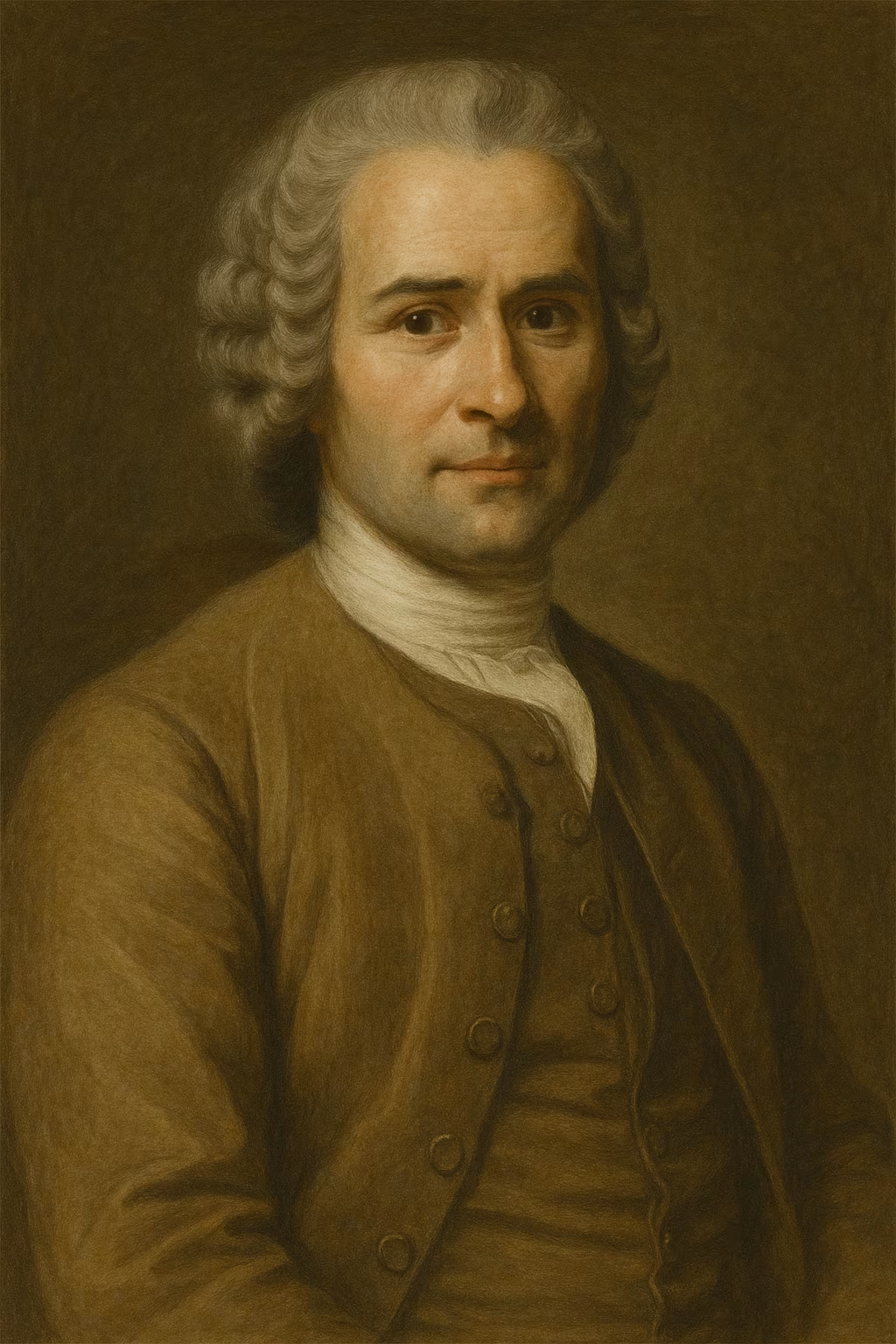
Jean-Jacques Rousseau
Philosopher, writer, and political theorist of the Enlightenment
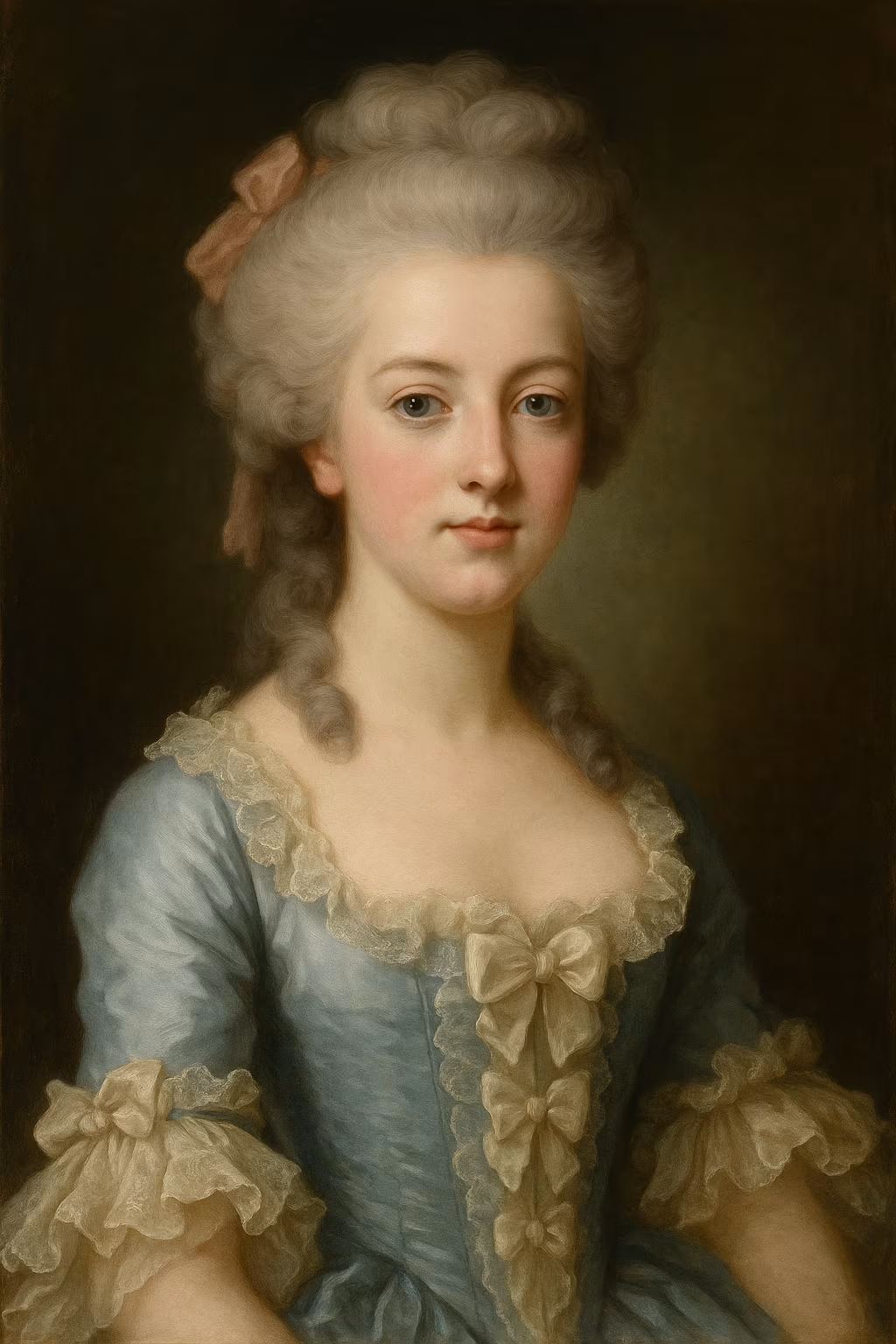
Marie Antoinette of Austria
Queen of France and Navarre
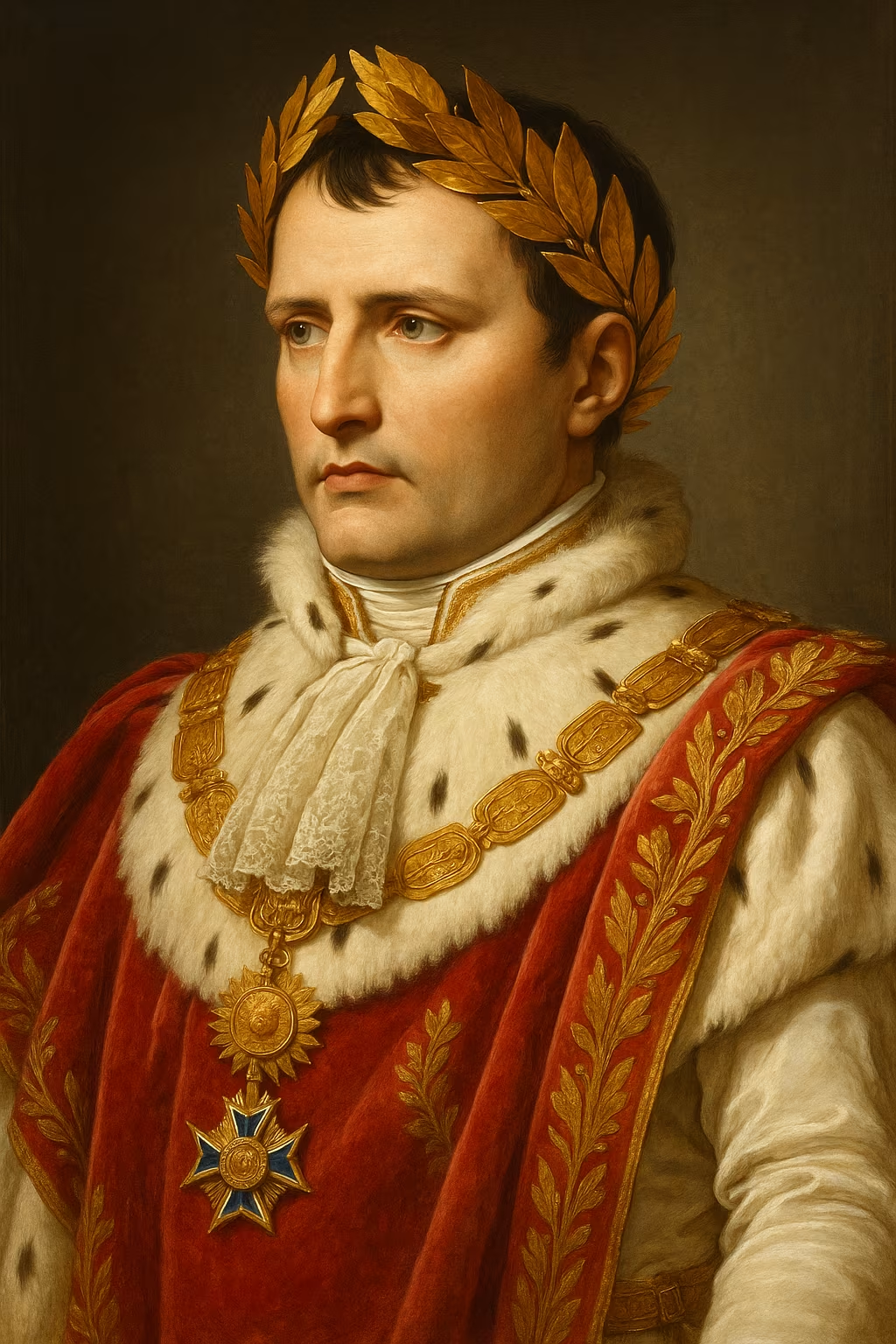
Napoleon Bonaparte
General, First Consul and Emperor of the French
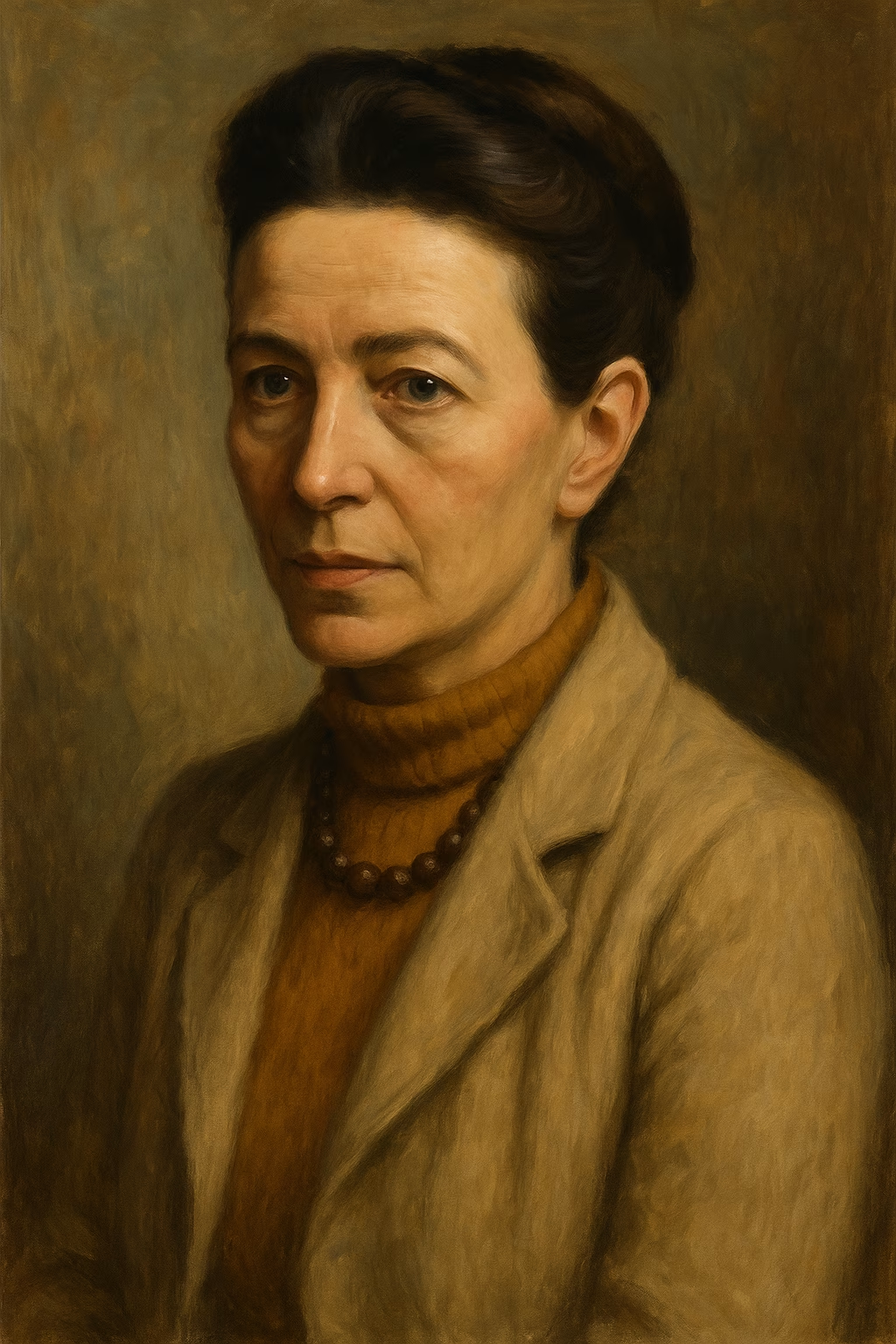
Simone de Beauvoir
French philosopher, writer, and feminist activist
Specialized Sites
Batailles de France
Discover battles related to this figure
Dynasties Legacy
Coming soonExplore royal and noble lineages
Timeline France
Coming soonVisualize events on the chronological timeline